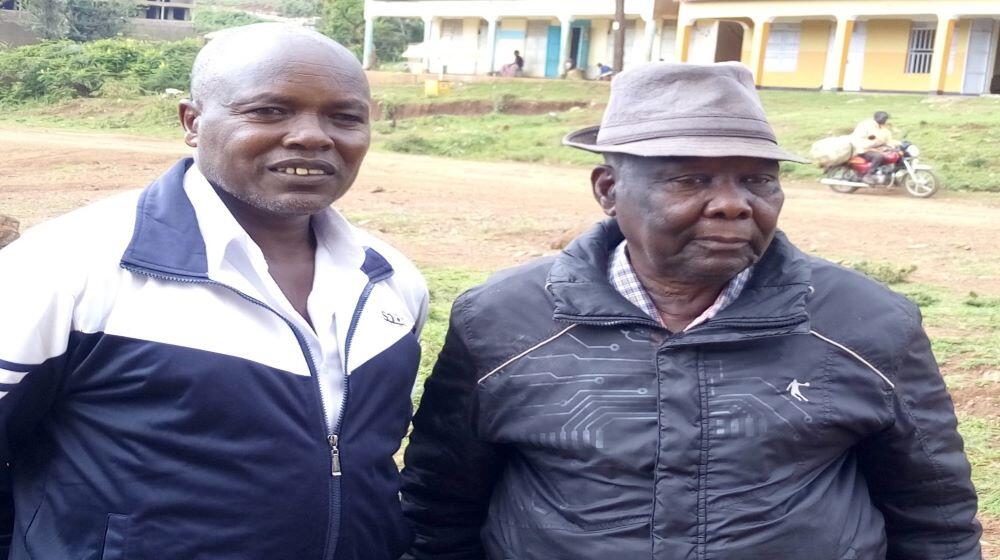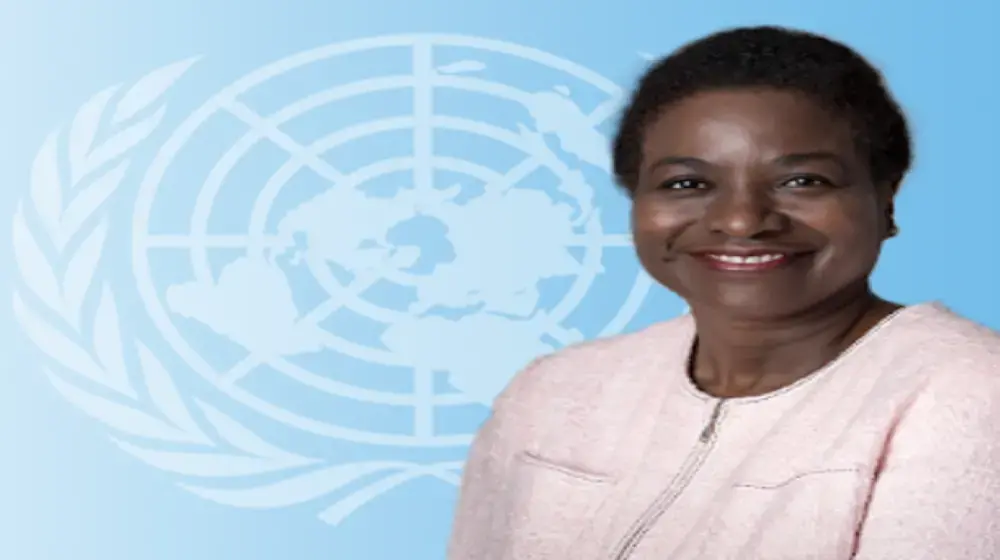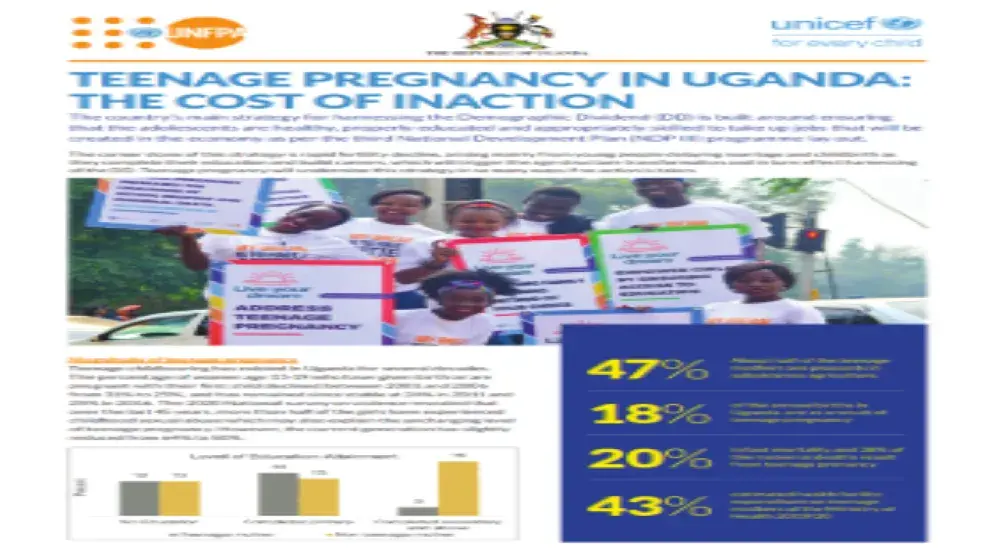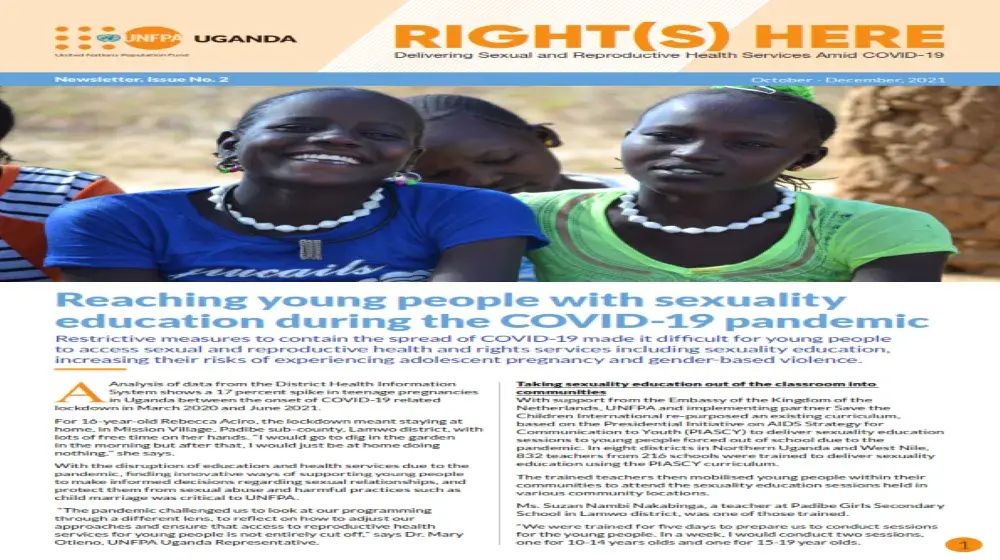BUKWO, eastern Uganda – Seventy eight-year-old Stephen Anguria is collaborating and taking the lead to influence communities in Sebei region, eastern Uganda to abandon the harmful Female Genital Mutilation (FGM).
The retired politician is among the 130 members of the Male Action Groups (MAGs) champions in the three districts of Bukwo, Kapchorwa and Kween carrying out community sensitization on ‘social norm change’ to ensure young girls and women do not suffer under the dehumanizing traditional practice of FGM. The men also mobilize communities to end child marriage.
The MAGs are some of the community structures working with Action Aid International - Uganda to accelerate the abandonment of FGM, under the United Nations Population Fund – United Nations Children’s Fund, Joint Global Programme to Eliminate FGM.
“The practice of FGM in my community has been around from time immemorial, but we have come to stop it. Our [MAGs] role and responsibility is to sensitize the community within those areas where FGM is still being practiced on the dangers of mutilation of our girls and discourage the practice,” says Mr. Anguria whose two wives were forced to undergo FGM.
“We call rallies and sensitize the public. We move to the villages to educate the old men and women, parents and girls on this bad and harmful practice. We have seen mindset change. The parents and girls are denouncing it (mutilation). Mutilation is going down,” he said.
He added, “The men especially those who are educated are beginning to buy the idea of not marrying mutilated girls because they have learned the dangers and complications associated with FGM.”
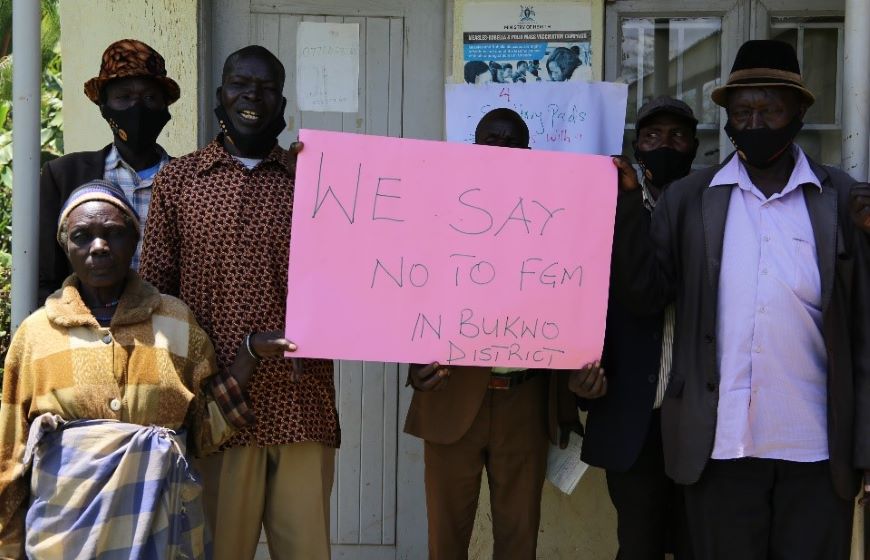
FGM is considered a rite of passage for girls into womanhood and subsequently leading to child marriage, particularly among the Sabiny in Sebei, Kadam, Tepeth and Pokot communities of Karamoja sub-regions of Uganda.
Statistics from the Uganda Demographics and Health Survey (UDHS, 2016) indicate that prevalence of FGM has come down from 1.4 percent in 2011 to 0.3 percent in 2016.
“We encourage parents to take these girls to school. Once a girl has finished her education and gets a degree, it becomes very difficult for her to come and lie down to be circumcised,” said Anguria.
FGM procedure involves altering or injuring the female genitalia for non-medical reasons and has far reaching consequences on women and girls’ health including chronic pain, infections, increased risk of HIV transmission, anxiety and depression, birth complications, infertility, getting genital keloids and in the worst cases, bleeding to death.
Samuel Ononge, the Project Officer at Action Aid International said that there has been increased community mindset change, as result of MAGs intervention on FGM.
“A total of 520 boys and men have been reached by MAG members with information on social norm change leading to a shift in the mindset of communities,” said Mr. Ononge.
“Through the MAGs community engagements, key cultural and religious leaders have delinked themselves from FGM and committed to support all engagements that promote women and girl’s rights in every available space,” he said.
Mr. Ononge is impressed by the way communities are embracing girl child education as an intervention to eliminate FGM.
“Four girls who were denied school fees by their parents because they refused to be mutilated were supported by men and boys in Kween district to go back to school,” he says.
- Written by Samuel Okiror

